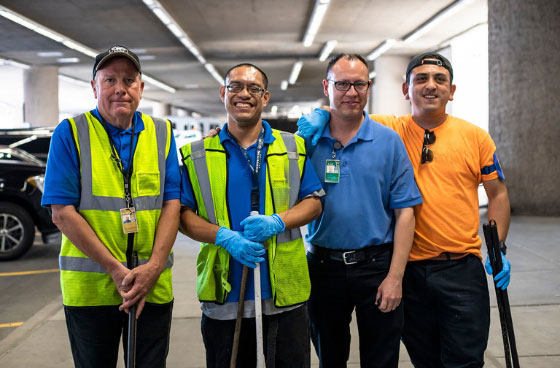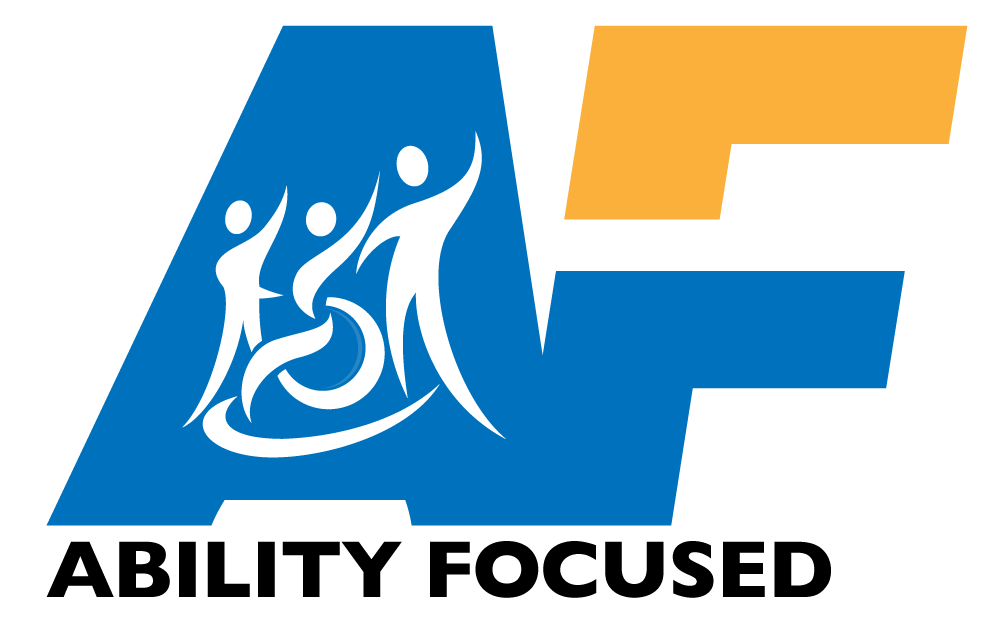What We Do
AFPS proudly serves NCC, Kent, Sussex counties.
How does AFPS accept individuals for service?

Individuals are accepted by referral. The acceptance process begins once AFPS receives a referral and supporting documents from the referring counselor or case manager. We accept referrals from the Division of Developmental Disabilities Services. We provide the following non-facility-based services, including but not limited to:
- Day Habilitation
- Community Participation
- Prevocational Services
- Supported Employment (Individualized SE).
How does AFPS Employment Services accept individuals for service?

Individuals are accepted by a referral. The acceptance process begins once AFPS receives a referral and supporting documents from the referring counselor or case manager. We accept referrals from the Division of Vocational Rehabilitation Services and the Division of Developmental Disabilities Services. AFPS provides the following services, but not limited to:
- Community-Based Assessments
- Soft Skill Development
- Resume Creation
- Interview Support
- Job Search
- Job Placement
- Supported Employment/Job Coaching
- Integrate into the community
Service Descriptions
Community Participation
Community Participation services are the provision of scheduled activities outside of an individual’s home that support acquisition, retention, or improvement in self-care, sensory-motor development, socialization, daily living skills, communication, community living, and social skills. Community Participation services include supervision, monitoring, training, education, demonstration, or support to assist with the acquisition and retention of skills and training and education in self-determination. Community Participation may include self-advocacy training to assist the participant in expressing personal preferences, self-representation, and individual rights and to make increasingly responsible choices. Each individual receiving Community Participation services works toward acquiring the skills to become an active member of the community. Services are furnished consistent with the participant’s person-centered plan (PCP). Because Community Participation is very individualized and is heavily focused on community exploration, it can only be provided in staffing ratios of one staff to each participant or one staff to two participants.
Community Participation services focus on the continuation of the skills already learned in order to build natural supports in integrated settings. The individual is ready to interact and participate in community activities and needs the supports of staff to facilitate the relationship building between the individual and other non-disabled participants within the community activities. Ideally, the paid staff will fade or decrease their support as the natural supports become sufficient to support the individual in the integrated settings and activities.
Community Participation may be furnished in the general community, or any combination of service locations, provided that the activities take place in a non-residential setting that is separate from the participant’s private residence or other residential living arrangement. Individuals may gather at the beginning and end of the day at a “hub” before embarking on their activities of the day but may not spend any more than 1 hour in total at the hub per day. Other than the brief period at the beginning or end of the day, Community Participation cannot be delivered in a provider owned or managed setting.
The provider must actively promote and be capable of providing opportunities for full access to participate in the greater community for those waiver participants that express a desire for such access and for whom it would not be contrary to their health and safety needs as articulated in their person centered plan. The provider must demonstrate that they support individuals to exercise their option to achieve their desired level of participation in the community. To the greatest extent possible, individuals should be exposed to a broad array of community experiences so that they can make informed choices about what they like and what they don’t like.
Supported Employment
Individual Supported Employment Services are provided to participants who, because of their disabilities, need ongoing support to obtain and maintain an individual job, which is competitive or customized employment, or a self-employment position in an integrated work setting with the general workforce. The supported employment services are provided on a one-to-one staff-to-consumer ratio. Participants must be compensated at or above the minimum wage, but not less than the customary wage and level of benefits paid by the employer for the same or similar work performed by individuals without disabilities. The outcome of this service is sustained paid employment at or above the minimum wage in an integrated setting in the general workforce, in a job that meets personal and career goals in order to promote community inclusion.
Supported individual employment may also include support to establish or maintain self-employment, including home-based self-employment. Supported employment services are individualized and may include any combination of the following services:
- vocational/job-related discovery or assessment,
- person-centered employment planning,
- job placement,
- job development negotiation with prospective employers,
- job analysis,
- job carving,
- training and systematic instruction,
- job coaching,
- on the job employment supports,
- social skills training, benefits support,
- training and planning,
- transportation,
- asset development and career advancement services,
- implementation of assistive technology, and
- other workforce support services including services not specifically related to job skill training that enable the waiver participant to be successful in integrating into the job setting.
Pre Vocational Services
Pre Vocational Services are learning and work experiences, including volunteer work that assist the individual to develop general, non-job-task-specific strengths and skills (soft skills) that contribute to employability related to the participant’s identified employment goal. The outcome of this service is competitive, as integrated employment in the community is matched to the individual’s interests, strengths, priorities, abilities, and capabilities.
Pre-Vocational Services may include activities that assist the individual to improve their:
- Ability to communicate effectively with supervisors, co-workers, and customers;
- Ability to display generally accepted community workplace conduct and dress;
- Ability to follow directions;
- Ability to attend to tasks;
- Workplace problem solving, skills and strategies;
- General workplace safety;
- Mobility Training.
A clear distinction must be made between Pre-Vocational Services and Vocational Services. Pre-Vocational Services focus on teaching general skills (soft skills) that contribute to the individual’s employability. Vocational Services are services that teach job task specific skills. The only vocational services covered under the DDDS Lifespan Waiver are Supported Employment – Individual and Supported Employment – Group.
Pre-Vocational Services are expected to occur over a defined period of time with specific employment outcomes to be achieved, as determined by the individuals and his/her service and supports planning team through an ongoing person-centered planning process.
Individuals receiving Pre-Vocational Services must have employment related goals in their person-centered services and supports plan, and the pre-vocational activities must be designed to support such employment goals.
A person receiving Pre-Vocational Services may pursue employment opportunities at any time to enter the general work force. Pre-Vocational Services are intended to assist individuals to enter the general workforce.
Participation in Pre-Vocational services is not a pre-requisite for individual or small group supported employment services; individuals may choose to go directly into supported employment in lieu of pre vocational services.
The individual’s person-centered services and support plan must include Pre Vocational Services as a desired service and their goals, services and supports must be consistent with the services defined as Pre Vocational Services. The Pre Vocational goals, person-centered services, and supports plan must be reviewed no less than annually, more frequently as necessary or as requested by the individual. These services and supports should be designed to support successful employment outcomes consistent with the individual’s goals.
Pre-Vocational Services may include volunteer work, such as learning and training activities that prepare a person for entry into the paid workforce.
Individuals receiving Pre-Vocational Services may also receive Supported Employment and/or Day Habilitation Services. A participant’s person-centered services and supports plan may include two or more types of Day Services; however, different types of day services may not be billed for the same part of the day.
Personal care/assistance may be a component part of Pre-Vocational Services as necessary to meet the needs of a participant, but may not comprise the entirety of the service.
